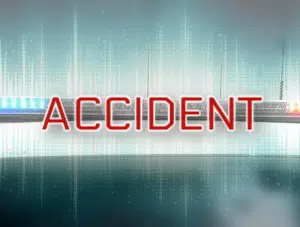(Des Moines) The House Government Oversight Committee questioned officials from the Iowa Judicial Branch and State Court Administration Wednesday while investigating the misallocation of $27.5 million in court debt funds caused by programming errors.
Committee members heard testimony and asked questions of State Court Administrator Robert Gast, Iowa Judicial Branch attorney Amber Shanahan-Fricke and Caitlin Jarzen, the branch’s director of government affairs, about how errors in the programming used for court fine distributions that resulted in misappropriated money.
In 2020 and 2021, state lawmakers passed legislation that “significantly modified how court debt is collected and distributed,” judicial branch staff said in an October statement. Reprogramming the judicial branch’s case management system for these changes resulted in programming errors, according to the statement, which in turn resulted in incorrect distributions of court debt funds.
According to a December 2024 report by Auditor Rob Sand, the errors caused seven state funds, including the Victim Compensation Fund, to be underfunded between fiscal years 2021 through 2024, while the state’s general fund and two other funds received over-allocations.
During the meeting, lawmakers criticized the Judicial Branch for not sharing information on the error and resulting misallocations with lawmakers until a significant period of time had passed after the problem was identified. In October 2024, House Speaker Pat Grassley and Iowa Department of Management Director Kraig Paulsen sent letters to Sand criticizing the auditor’s office for not taking action on the issue earlier, as the auditor’s office was alerted of financial irregularities in 2022 by the state Department of Transportation.
Sand, the only Democrat to hold statewide elected office in Iowa, and state GOP leaders had criticized one another for responsibility of investigating and addressing the impacts of the misallocations in 2024. But at the House committee meeting Wednesday, lawmakers said it is a bipartisan effort to ensure this issue is addressed and similar errors do not occur. Rep. Austin Baeth, D-Des Moines, said the issue is “not partisan at all,” and the Legislature should be working together to find ways to fix the issue and attempt to simplify Iowa Code to prevent future errors.
“I ask that we collectively try to find ways — maybe there’s other states that do it better, maybe there’s a way we can make it home grown — but I ask that we collectively, in a bipartisan fashion, in a nonpartisan fashion, find solutions going forward,” Baeth said.
Gast, the court administrator, said in a December 2024 letter the judicial branch had implemented corrections to the programming errors in the case management system as of Nov. 22. He said in the letter the branch had contracted with a third party — Zirous, a West Des Moines information technology firm — to review and audit the new programming. He also told the committee the judicial branch was developing an internal auditing process for future programming changes.
Addressing questions from lawmakers on why the Legislature and other state entities were not informed earlier about the issues, Gast said delays in releasing information came as the process for working with a national consulting group to identify the errors took longer than expected.
“We wanted to have the full scope and breadth before we came to you and not come in, and (say) ‘the sky is falling!’ and not have some idea of what we were looking at,” Gast said.
Rep. Charley Thomson, R-Charles City, a lawyer, said he had doubts about the judicial branch’s response on sharing certain emails and communications about the errors, and the timelines it would take to receive this information.
“I’ve practiced for 38 years and I know malarkey when I see it, and I know malarkey discovery responses when I see them,” Thomson said.
Court officials said they are willing to share information, and asked lawmakers to submit their requests in writing with time periods, involved parties and search terms specified.
Gast and Shanahan-Fricke said the judicial branch plans to present a technical bill next year that will keep the percentages of debt distribution in line with what the Legislature intended in previous bills, but would create a new framework for distributing the money that would address these errors.
“Along with the changes we’ve implemented internally on how we move forward on programming, and especially financial programming, I believe with what we’ve done in that bill, we will be able to put this to bed,” Gast said.







